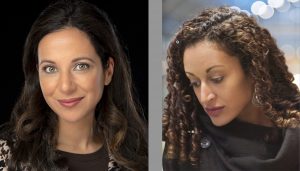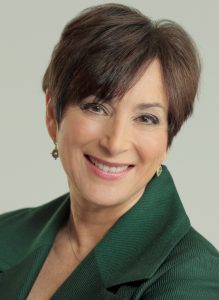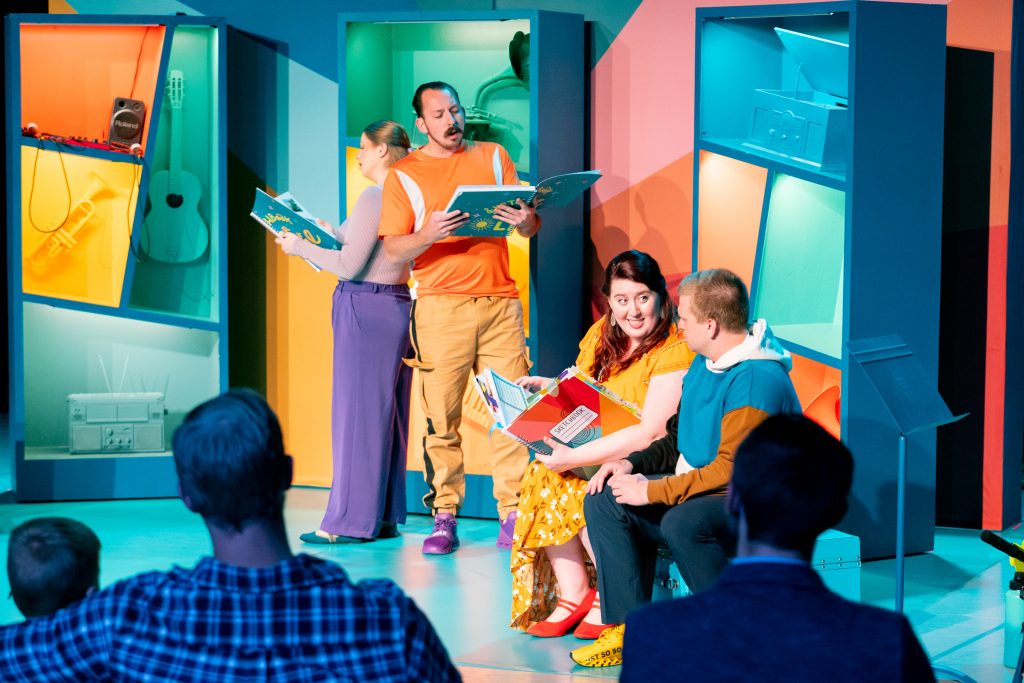More than 400 new operas have been produced on the world’s mainstages during the 21st century so far. That’s great, right? The bad news is that a surprisingly large share of those will never be revived, not even once. (For context, since opera’s beginnings around 1600, tens of thousands of operas have reached the stage, and only about 50 to 60 of those appear today with any regularity.) Thus the Lyric Opera of Kansas City’s approach to new-works commissioning seems both shrewd and refreshing: especially at a time when American opera companies have experienced a 20 to 30 percent drop in season subscriptions since COVID-19, according to Opera America.

Neal Long / Photo by Andy Newbegin
Rather than spend millions adding to opera’s list of one-production wonders, the Lyric has determined to create new works in a realm where the repertoire is astonishingly meager: operas for families and young people. “We are really concerned about who our audiences will be in the year 2050,” said Neal Long, the Lyric’s director of learning since early 2022. “So it is our hope that by targeting families and intergenerational audiences together, we can foster a long-term love of the art form and a desire to seek out stories through art.”
There are a number of operas intended for young people, though alarmingly few good ones. Even opera fans can only name a dozen or so works (Hansel and Gretel, Amahl and the Night Visitors, Benjamin Britten’s Noye’s Fludde, Rachel Portman’s The Little Prince, for instance) that are suitable for children and that grown-ups can bear to sit through.
“You either get The Three Little Pigs or Little Red Riding Hood,” said Lyric General Director Deborah Sandler, a driving force behind the family-opera commission project. “Not that there’s anything wrong with those stories, they certainly had their place in the ‘80s and ‘90s. But we’re dealing with different issues here: We’re trying to go deeper.”

Rosabella and Dina Gregory
In August, the Lyric announced that it has commissioned two new operas for this series, both to be created by leading operatic and literary figures. In April 2024, the company will produce The Haberdasher Prince, a new work by the twin-sister team of composer Rosabella Gregory and librettist Dina Gregory. And in the spring of 2025, the Lyric brings Maya and the Magic Ring, with music by Lori Laitman (The Scarlet Letter, The Three Feathers) and a libretto by poet Dana Gioia, who served as chairman of the National Endowment for the Arts from 2003 to 2009. These works follow last year’s Sketchbook for Ollie, a story by composer-librettist Rachel J. Peters about dealing with grief.
The commissioning program is designed to create exceptional works of art that go beyond mere entertainment: works that teach “empathy, social-emotional learning, and artistic literacy for all ages,” as the Lyric’s announcement states.

Lori Laitman and Dana Gioia
Neal elaborated: “Opera is musical storytelling … it can tell basically any story. But it is our belief that opera has a heightened capacity to teach empathy, and in 2023, in a world post-COVID where we have perhaps lost some empathic skills and lost the ability to have conversations, we’re really interested in putting works out that foster these conversations: works that use the stage for discussion, that address topics that are universal, but that are constructed in a way where we can connect the dots between the art onstage and the individuals in the audience.”
What sort of team does a company look for when creating a “family opera”? For the most part, it’s the same team one would seek for any commission. “We’re interested in working with composers who use melodies and tunes,” Neal said. “When engaging children, and with folks in general, who may not be used to opera or with the way time moves in opera, at the end of the day it’s really important to have something one can hum. … In other words, a new opera needs to look and sound like an opera, incorporating the formal elements characteristic to the art form. I feel a responsibility to have an aria, to have recitative, to have a duet, to have an ensemble. The characteristics of opera are important.”

Deborah Sandler Kemper
Composers and librettists chosen for the Lyric’s series are veterans in these areas. Rosabella is an award-winning composer for British theater, television, and opera, and her sister, Dina, is an author, lyricist, and librettist. Fanfare called Lori Laitman, composer for the Lyric’s 2025 opera, “one of the most talented and intriguing of living composers.” Dana Gioia, recipient of the Presidential Citizens Medal, is a poet, critic, and librettist whom Business Week magazine called “The Man Who Saved the N.E.A.”
Central to the program are “four values that we look toward when engaging composer and librettists,” Neal said. First of those is “curricular alignment: that the creators tie the theme of their story into the learning that’s already happening in the classroom.” Second is social-emotional learning, and third is musical accessibility.
Fourth, the operas should evoke interactivity. “We really wish for our audiences … to be actively engaged in the storytelling,” Neal added. “So there will be opportunities, whether it’s for call-and-response or throwing ideas back and forth, to engage. Interactivity is key.” The Lyric will foster this effort by partnering with community centers, houses of worship, and schools, toward presenting operas at alternate venues throughout the region.
After a brief initial run at the Lyric’s Production Arts Center, each portable production (normally using four to six singers from the Lyric’s Resident Artists Program and a small chamber ensemble) can “go on the road” with ease. Many Kansas Citians might thus be experiencing opera for the first time ever: and in a safe, familiar place.

The Lyric’s 2022-2023 Resident Artists, performing here in Sketchbook for Ollie, were Soprano Krista Renée Pape, Bass-Baritone Luke Harnish, Mezzo-Soprano Aubrey Odle, and Tenor Wayd Odle. / Photo by Andrew Schwartz
After last year’s presentation of Sketchbook for Ollie, young people and parents were encouraged to share stories of grief. The presenters were astonished at the responses. “It was really powerful,” Neal said. “These children spoke so articulately about their personal experiences with loss. … For some of them it was an object … or even a vacation. But then some of them told really poignant stories of deaths that they had experienced.”
The important thing was that opera was meeting people “where they lived,” literally and figuratively, and from that spark, deeper interest can grow. “Everybody’s talking about being a value to their community, engaging with their community,” Deborah said. “And if you take a long view, you have to start early.”
The current initiative has “enabled us to talk to a lot of people that we don’t normally talk to, and create different partnerships in the community,” she added. “It’s not going to change what’s going on in the arts overnight. … But it can change things eventually. If all of us can continue to do this, I think there’s hope that, in 2050, the arts in Kansas City will truly be integral to who we are as a community.”
For tickets and information, call 816-471-7344 or go to kcopera.org. To reach Paul Horsley, performing arts editor, send an email to paul@kcindependent.com or find him on Facebook (paul.horsley.501) or Twitter/Instagram (@phorsleycritic).
Featured in the October 14, 2023 issue of The Independent.
By Paul Horsley